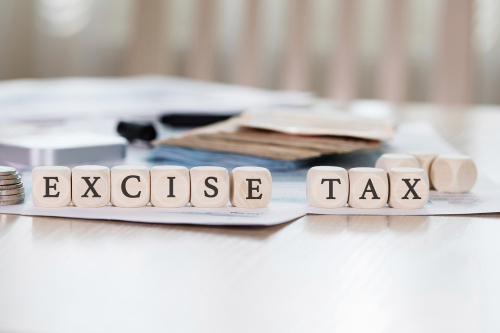You’ve heard of a sales tax, an income tax and even a property tax. But did you know there’s another category of tax applied to either the use, sale or manufacture of specific goods or services? You’re not alone. Many Americans are unaware of this clandestine tax.
In many instances, excise taxes are applied to products or services in order to curb consumer consumption for health or even environmental reasons. Think tobacco, alcohol and gasoline.
This tax is applied by both state and federal governments, which means the amount varies depending on what area of the country the product or service is purchased.
For example, California has the highest excise tax rate for fuel. On top of the 13 cent per gallon state sales tax, a state excise tax of 47 cents per gallon and a federal excise tax of 18 cents per gallon is applied. In total, these taxes add almost a dollar per gallon to the final bill.
So where does this money go? Well the short answer is it depends. It’s different for every product, but is usually set aside to fund specific projects or agency initiatives. For example, the excise tax on gasoline in California is meant to finance transportation and environmental costs.
Next time you reach for a bottle of wine or fill up the tank, beware of the varying excise taxes that will be added to your bill.



